LATEST NEWS


Introducing for-profit companies into America’s criminal justice system has been a bad deal for governments across the country.
During the past several years, a movement opposed to profit incentives in our criminal justice system has grown. Private prison corporations such as Corrections Corporation of America and GEO Group have come under increasing scrutiny and pressure for cutting corners, contracts that include “occupancy guarantees” of 80, 90 and even 100 percent, and unsafe prison conditions.
But it’s not just the prisons that are handed over to CCA or GEO Group. Almost every service delivered inside the prison is being outsourced to for-profit corporations. Outsourced inmate health care, food and commissary services, telephone and financial services like money transfers between families and inmates are all adding to the poor conditions in prisons and burdening inmates and their families with extra costs.
For example, earlier this month, the Palm Beach Post broke the story of the deplorable treatment of prisoners by health care contractors in Florida prisons as contractors seek to maximize profits by cutting costs.
» Read more about: For-Profit Corporations’ Prison Break-in »


Is the Pope a tease? Not really. He’s trying. He challenged the neoliberal economic system just a month into his papacy and brought up one of its difficult byproducts: growing inequality. And last week, at his recently convened synod on the family, he attempted to coax his bishops to expand their definition of the family, acknowledging yet another difficult issue: the rapidly expanding fact of gay marriage. For a brief moment, it appeared the Church was not only poised to liberalize its definition of the family, but it might even be ready to jumpstart Vatican II and go so far as to overturn one of its most cherished catechisms: denial.
It all started with an October 13 press release that included this hopeful language for LGBT Catholics (the draft was credited to a Pope Francis appointee, Monsignor Bruno Forte, a theologian known for his progressivism):
“Homosexuals have gifts and qualities to offer to the Christian community.
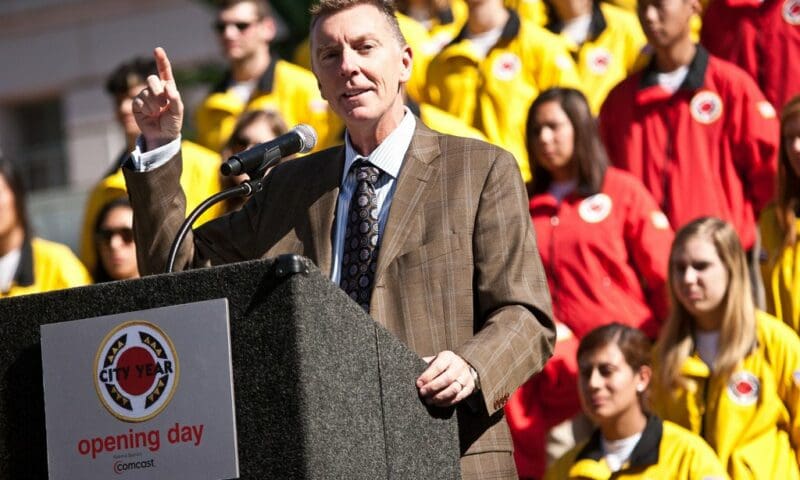

The symbolism of last Friday’s press conference by the recently embattled and newly ex-superintendent of the Los Angeles Unified School District, John Deasy, couldn’t have been more explicit. Speaking for the first time as a private citizen, Deasy spoke to reporters on a conference call hosted by Students Matter.
The Silicon Valley-backed, Menlo Park nonprofit has paid the legal bills for the Vergara lawsuit, which challenged teacher job protections in the state earlier this year by successfully suing the California Department of Education and LAUSD. Deasy became a star witness — for the plaintiffs — when he testified against the state and his own district’s teachers.
For a man who had been brought by L.A. Mayor Antonio Villaraigosa from the Gates Foundation in 2010 to LAUSD as the top deputy to then-superintendent Ramon C.
» Read more about: Mistakes Were Made: The John Deasy Years »
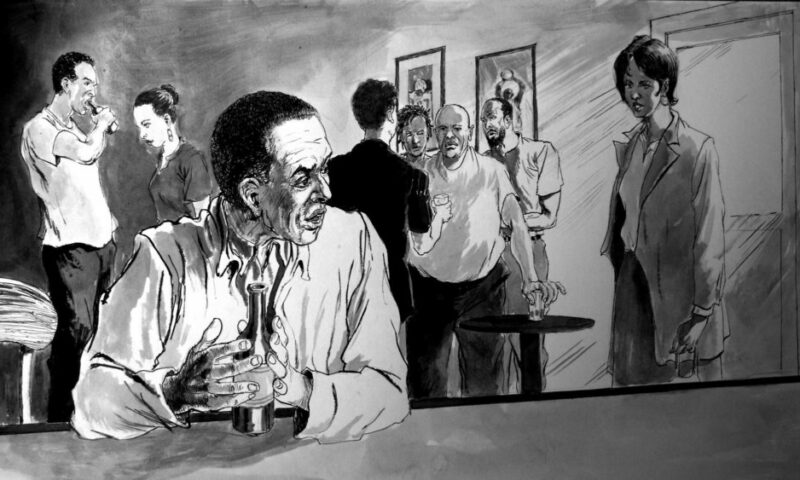

“Son of a . . . ”
Splitting a knuckle open, Jess Dixon grunted through gritted teeth. Working to get the rusted wheel nut loose, it had come undone too fast as she wrenched on the tire iron. Her hand banged onto the edge of the wheel well.
Ignoring the pain, she hurried and got done removing the slashed tire and put the spare on and secured it in place on the hub. The spare was not in good shape, worn smooth on one side, the steel belt underneath just about exposed. She didn’t dig her job but she couldn’t be losing it either.
She got her car going and drove to work, hoping she wouldn’t have a blowout on the lousy tire. Because she got up early each morning, and knew how to change a tire and a few other car repairs from her Uncle Hank showing her,
» Read more about: The Dixon Family Chronicles: “Time Is Tight” »


If you watched the Roosevelt series on PBS, as I did, you might have been struck by how Teddy and FDR saw their presidential duties. Both acted on the belief that the role of the federal government was to secure the material wellbeing of the American people. In their eyes the central government had a responsibility for full employment, living wage jobs and reining in the power of corporate America, among other initiatives. They took responsibility for how the national economy impacted the ordinary citizen and saw government action as a vehicle to reverse economic suffering.
Fast forward to the present. We now have a largely paralyzed federal government, consumed in debate over whether or not government action is a curse or a blessing, and unable or unwilling to address the widening income gap. In response, many major American cities are stepping into that pro-active, Roosevelt role; new minimum wage laws have been passed,
» Read more about: The Minimum Wage: A New Deal for Los Angeles Workers? »


Take the state law on fair competition. Add the Accrediting Commission for Community and Junior Colleges‘ actions to shut down City College of San Francisco (CCSF). What will these ingredients amount to in a court of law?
That will be determined by San Francisco Superior Court Judge Curtis E.A. Karnow following a non-jury trial that begins October 27. Last year San Francisco City Attorney Dennis Herrera filed a lawsuit on behalf of the people of the state of California (not CCSF) alleging the ACCJC’s evaluation of CCSF was unfair and unlawful under the state law for business competition.
“We have alleged that the ACCJC’s actions, specifically with respect to the evaluation of CCSF, were both unlawful and unfair,” Sara Eisenberg, a San Francisco Deputy City Attorney, told Capital & Main by phone. The ACCJC is subject to California’s Unfair Competition Law which prohibits any business from engaging in unfair,
» Read more about: City College of San Francisco Trial Approaches »


John Deasy is gone. According to City News Service, the Superintendent of Schools for the Los Angeles Unified School District (LAUSD), “submitted his resignation today, ending his three-year tenure as head of the nation’s second-largest school district. Although he is stepping down as superintendent, he will remain with the district on ‘special assignment’ until Dec. 31.”
Deasy’s resignation letter, posted on LAUSD’s website, concludes:
I will transition from this job to another way to serve. In allowing me to do that, I hereby submit my resignation. I will work with your council to close out my employment contract.
In closing, let me thank my critics, for they have helped us see where we can do our work better, and that is what we do with each opportunity to improve. I also wish to thank my supporters. You have enabled us to move quickly to right wrongs in the lives of youth,
» Read more about: School’s Out for LAUSD Superintendent John Deasy »


“Am I stutterin’, son?” the green-eyed pleasant-looking man with the perfect teeth said to the tall newcomer standing by his table. Around them the din of the eatery seemed to recede. “There’s no DeMarkus around here.” Like his displeasure, Teaflake made no effort to hide the butt of the Glock sticking out of his waistband.
The young woman sitting with Teaflake smiled understandingly, like she was ushering a patient in for a tooth extraction, Joseph “Little Joe” Dixon reflected.
“Didn’t mean nothing,” he said. “Heard you two was boys is all.” He wasn’t about to back down but wasn’t looking to escalate matters either.
“Who are you?” Teaflake said, his voice low, his enunciation clear and concise, a sharp contrast to the way the usual street hoodlum swallowed vowels and ignored tenses.
Little Joe said, “I’m the new fitness director at Water Stones.” The multi-purpose center was Waterston but everybody called it by its mangled nickname.


I’m currently taking an Occidental College class called Community Organizing – a required class for my Urban and Environmental Policy major. We’ve spent the last couple of weeks learning about what it means to bring about change – the planning that needs to go into it, the necessary time commitment, the different levels of power you need to take into account.
To be completely honest, I’m still figuring out whether I consider myself an activist. Am I someone who is engaged in bringing about change? I’m not sure.
That’s when I had the opportunity to interview a modern-day community organizer and change-maker: Pastor Norma Jean Patterson.
She made it clear that life-changing community organizing continues today, and made the historic leaders we talked about in class much more tangible in my mind. In the hour she spoke, she did more than just tell me her story, she moved me to understand the simpler concept underneath all the issues of community organizing: the power of loving people.
» Read more about: Community Organizing: Making it Real, from L.A. to East St. Louis »
Dino Degrassi and Jason Campbell engage in dialogues for a living. They also put the electrical wiring into some of Los Angeles’ largest and most recognizable building projects. Every morning at 6:30 the two electricians ride the street level elevator down into the construction site at Wilshire and Figueroa, where the core of the Wilshire Grand hotel is emerging out of the ground. When finished, the 73-story building will be the tallest west of the Mississippi.
Degrassi is a seasoned journeyman – ostensibly a teacher of apprentices like Campbell who work their way through a five-year program, learning as they go.
Throughout the day, the men’s hard-earned craft knowledge guides their conversation. “I try to help Jason work efficiently,” Degrassi says, as he moves along a cement deck tying in conduit. “I want to make sure he paces himself and doesn’t get hurt.”
“There’s a lot of wisdom to be learned from Dino,
» Read more about: Let’s Talk – Socrates at the Wilshire Grand »


Seventy-three percent of polled Americans believe that corruption in government is widespread. That’s a lot of distrust. And it leads to a lot of cynicism. A big chunk of that corruption comes from the revolving door of politics, greased by money so great it would make most of us faint-of-heart.
Pols move from elected office to big offices on Wall Street or to lobby firms in state capitals across the nation. Government regulators have often left the very industry they are charged with regulating to join a commission in the sector they are supposed to regulate. Later, they return to the same business they once worked for.
Of course these people are not making decisions in the best interest of the consumer, since even when they are on the government payroll they carry the acute awareness of soon returning to that corporate office. They want to regulate without annoying too many future employers.
At some point during the last decade, as various plans have been floated to avert climate change, it struck me that we’re focusing on the wrong problem. Global warming caused by a buildup of greenhouse gases in the atmosphere (carbon dioxide chief among them), has indeed sped us in the direction of rendering the planet uninhabitable for life, human and otherwise. But climate change is not a disease in itself. Instead, it’s a symptom of a disease, systemic and pernicious, brought on by squandering the parts of nature we call “resources” at a breathtaking clip and without restraint. All of the solutions on offer, from displacing coal with natural gas in the West to constructing more nuclear reactors in the South, are supposed to allow us to go living exactly as we do, without the consequences.
Except we can’t. As Naomi Klein, author of No Logo and the blockbuster bestseller, The Shock Doctrine,
» Read more about: Reviewed: Naomi Klein’s “This Changes Everything” »


Detainees at the Northwest Detention Center, an immigrant detention center operated by GEO Group in Tacoma, Washington, initiated the first of repeated hunger strikes on March 7, 2014. A note from one of the hunger strikers passed to his lawyer read, “Please contact the local news. There’s 1,200 people not eating—better food, better treatment, better pay, lower commissary, fairness.”
The story of the hunger strikers is documented in a new report released by Grassroots Leadership and Justice Strategies detailing how immigrants detained in privately run detention centers across the country are routinely exposed to shocking levels of violence, sexual abuse, neglect, filth and wrongful death.
The report titled For-Profit Family Detention: Meet the Private Prison Corporations Making Millions By Locking Up Refugee Families, exposes how Corrections Corporation of America and GEO Group are both banking on a massive expansion to immigrant family detention.
» Read more about: Lowering the Bars for Humane Prison Conditions »
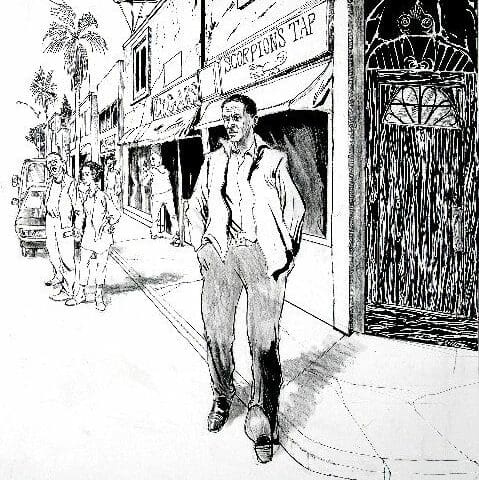

“You don’t know what the hell you sayin’,” the red-eyed man blurted. He came off his barstool too fast, knocking it over as he did so. Drunk, he teetered over to Hank Dixon, who’d turned on his stool toward him but remained sitting.
“Best slow your roll, Al,” the one-handed bartender Pierre Gaston said languidly. He took hold of an empty glass between the pincers of his prosthesis. Behind him and above the bottles on a flat screen TV, played a near mute newscast about a truckers’ job action at the port.
“Oh, I’m’a slow somethin’,” Al Griffiths sneered, ignoring the advice. He stood close to the stockier Dixon; Griffiths’ beer and vodka chasers a heavy aroma in the other man’s nose. “You didn’t go around with Juanita. She wouldn’t have had anything to do with you, toilet seat fixer.”
Dixon squinted at his accuser as he sipped on his beer.
» Read more about: The Dixon Family Chronicles: “The Sink Man” »
» Read more about: Watch: Gary Phillips Discusses “The Dixon Family Chronicles” »
By now British films that combine gritty economic issues with musical set pieces have become their own genre. These movies, often based on historical fact, typically involve the seemingly crazy schemes of a plucky band of commoners to save a dying industry or rescue a besieged group of workers. Pride is the most recent descendent of Brassed Off, The Full Monty, Kinky Boots and Made in Dagenham. It’s the story of the fateful 1984-85 coal miners’ strike, during which Prime Minister Margaret Thatcher managed to cripple the National Union of Mineworkers.
Stephen Beresford’s screenplay follows the efforts of Mark Ashton (Ben Schnetzer), a young gay militant, to rally his LGBT comrades to collect funds for the increasingly harried miners. He finds only a few adherents, but this energized band, which includes a closeted young student named Joe (George MacKay), a sarcastic lesbian, Steph (Faye Marsay) and a flamboyant actor played by Dominic West,


The gains won by Los Angeles County social workers during their strike last December were nothing short of historic. Members of the Department of Children and Family Services (DCFS), through the Children’s Social Workers union (part of Service Employees International Union Local 721), may have begun a sea change for children and families in the county. As the nation’s largest public child welfare agency, DCFS is now poised to be a bellwether for reform.
The job of the county’s social workers is to establish child safety, coordinate and evaluate visitation, substance abuse, mental health and domestic violence services; locate relative or foster care placements; prepare the children and transport them to placements; and for dependency court cases, prepare and write the court reports that are the basis for DCFS’ legal recommendations in legal proceedings.
As a former DCFS Supervising Social Worker, I believe that the high number of pre-strike caseloads severely hindered the ability of social workers to adequately provide services to maintain children at home or to reunify children with their parents and conduct thorough safety assessments.
» Read more about: DCFS Strike Gains: Protecting Children, Standing Up for Social Workers »
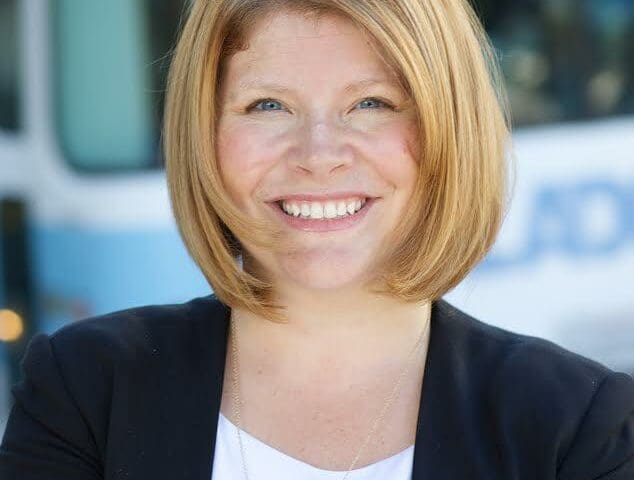

Seleta Reynolds, Los Angeles’ new chief of transportation, wants to help break L.A.’s dependence on cars. She believes that bikes are key to doing it. New York City, the Bay Area and other metropolises have already begun to show that a mixed transportation network with a central role for bicycles can be achieved in America. But can bikes prosper in the most infamous car town in the world?
Before being hired by Mayor Eric Garcetti this summer, Reynolds helped lead San Francisco’s Livable Streets office in that city’s transportation agency. She sees a bit of L.A.’s future in San Francisco’s present.
“In San Francisco, people are truly multimodal,” she told Capital & Main. “They take taxis, they take Uber and Lyft. They ride their bikes, they take a bike-share. They take the ferry, they ride the bus, they take the Muni Metro. Sometimes they drive, they take car-shares.
» Read more about: A Bike Lane Runs Through It: L.A. Rethinks Transportation »

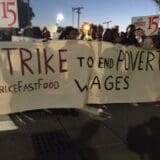
Seattle Mayor Ed Murray used last May Day to announce that business and labor had agreed to a historic plan to raise the minimum wage to $15 an hour. Seattle’s bold measure is part of a growing wave of activism and local legislation around the country to help lift the working poor out of poverty. The gridlock in Washington – where Congress hasn’t boosted the federal minimum wage, stuck at $7.25 an hour, since 2009 – has catalyzed a growing movement in cities and states.
The Seattle victory was a game-changer. Within months, politicians in other cities jumped on the bandwagon. San Diego city officials voted in August to adopt a $11.50 an hour by 2017. In San Francisco, which already has a citywide minimum wage, voters will decide in November whether to raise it to $15.
On September 24, the Los Angeles City Council voted by a 12 to 3 margin to require large hotels to pay at least $15.37 an hour to their workers.
» Read more about: A Movement Raises the Minimum Wage and Changes the Debate »


A $300,000 plane; $861,000 to pay off personal debts and keep open a struggling restaurant. A down payment on a house and an office flush with flat-screen televisions, executive bathrooms and granite counter tops. This isn’t a list of expenditures from Lifestyles of the Rich and Famous, this represents a small slice of the more than $30 million of taxpayer funds that have been wasted through fraud and abuse in Pennsylvania’s charter schools since they first opened in 1997.
A new report from the Center for Popular Democracy, Integrity in Education, and Action United is blowing the lid off the lack of public oversight at Pennsylvania’s 186 charter schools.
Inadequate audit techniques, insufficient oversight staff and a lack of basic transparency have created a charter system that is ripe for abuse in the Keystone State. But there is hope. The report provides a detailed roadmap for Pennsylvania to create an effective oversight structure and provide meaningful protections that can curtail endemic fraud and waste.